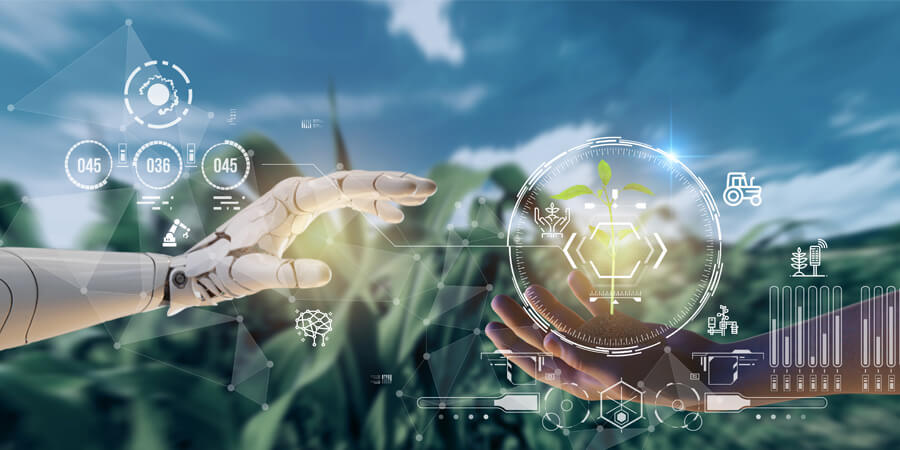The agricultural landscape in Africa is undergoing a profound transformation, propelled by advancements in telecommunications technology, particularly through the integration of the Internet of Things (IoT) and Artificial Intelligence (AI). These innovative solutions are revolutionizing traditional farming practices and ushering in an era of precision agriculture, where data-driven insights are optimizing crop production while minimizing resource usage and environmental impact.
The Emergence of Precision Agriculture
Precision agriculture signifies a pivotal transformation in farming practices, utilizing state-of-the-art technologies to optimize every facet of crop production. Through the integration of data analytics and live monitoring, precision agriculture equips farmers with the tools to make informed choices that amplify productivity, efficiency, and sustainability. This paradigm shift holds particular importance in Africa, where agriculture stands as a linchpin of the economy, supporting a vast portion of the population, including millions of small-scale farmers.
Top of Form
Harnessing IoT for Smart Farming
Harnessing the Internet of Things (IoT) has become instrumental in shaping modern farming practices, ushering in a new era of smart agriculture. Through the integration of interconnected networks comprising sensors, devices, and agricultural machinery, IoT solutions revolutionize farm management. These IoT-enabled systems gather comprehensive data on critical factors such as soil moisture levels, weather patterns, crop health metrics, and machinery performance. Armed with real-time insights, farmers can fine-tune irrigation schedules, monitor crop conditions, and swiftly identify pest outbreaks. Furthermore, IoT-driven precision agriculture facilitates optimal resource management, including water, fertilizer, and pesticides, fostering enhanced yields and sustainable farming practices.
AI-Driven Insights for Informed Decision-Making
The integration of advanced Artificial Intelligence (AI) technologies, particularly machine learning algorithms, represents a watershed moment, revolutionizing traditional farming practices and ushering in an era of unprecedented efficiency and productivity. At the heart of this transformation lies the ability of AI to analyze massive volumes of agricultural data with unparalleled precision and insight, thereby empowering farmers to make data-driven decisions that optimize crop yields, resource allocation, and sustainability.
The seamless synergy between AI and agriculture begins with the collection of extensive datasets from a myriad of sources, including IoT sensors deployed across farmlands, satellite imagery capturing crop health indicators, historical weather patterns, and soil composition records. These diverse data streams serve as the foundation upon which AI algorithms are trained to recognize complex patterns, correlations, and predictive models that inform and enhance agricultural decision-making.
Through sophisticated machine learning techniques, AI algorithms possess the capability to extrapolate valuable insights from these multifaceted datasets, providing farmers with real-time recommendations on a multitude of critical factors. From determining optimal planting schedules and irrigation regimes to identifying early signs of crop disease outbreaks and recommending targeted pest management strategies, AI empowers farmers to proactively address challenges and capitalize on opportunities, ultimately maximizing yields while minimizing resource wastage.
Furthermore, the adaptive nature of AI-driven predictive analytics ensures that farming practices remain dynamic and responsive to evolving environmental conditions, market dynamics, and emerging threats. By continuously learning from new data inputs and refining their predictive models, AI algorithms enable farmers to stay ahead of the curve, preempting potential risks and optimizing resource allocation for sustained agricultural success.
Moreover, the transformative impact of AI extends beyond the realms of individual farm operations, fostering collaboration and knowledge-sharing within agricultural communities. Through AI-powered platforms and digital agricultural extension services, farmers gain access to invaluable insights, best practices, and peer-to-peer networks, enabling them to collectively leverage the benefits of AI technologies for mutual growth and prosperity.
Navigating Challenges, Embracing Opportunities
The potential benefits of precision agriculture are immense, yet Africa faces challenges hindering its widespread adoption. Limited internet connectivity in rural areas and the need for skills development are prominent barriers to leveraging IoT and AI technologies effectively in farming.
The lack of reliable internet access in rural regions impedes the adoption of IoT and AI solutions. Furthermore, farmers require training and capacity building to maximize the benefits of these technologies.
Despite obstacles, there are ample opportunities for innovation and collaboration. The rapid expansion of telecommunications infrastructure and increased investment in agricultural technology set the stage for precision agriculture's growth in Africa.
Public-private partnerships are instrumental in driving innovation. By prioritizing digital literacy and investing in rural connectivity, stakeholders can unleash the transformative potential of precision agriculture.
In conclusion, telecommunications technology, IoT, and AI are revolutionizing agriculture in Africa, ushering in a new era of precision farming. By harnessing the power of data-driven insights and advanced technologies, farmers can optimize resource utilization, improve productivity, and enhance resilience to environmental challenges. With concerted efforts to overcome existing barriers and capitalize on emerging opportunities, precision agriculture has the potential to drive inclusive growth, food security, and environmental sustainability in Africa's agricultural sector.
